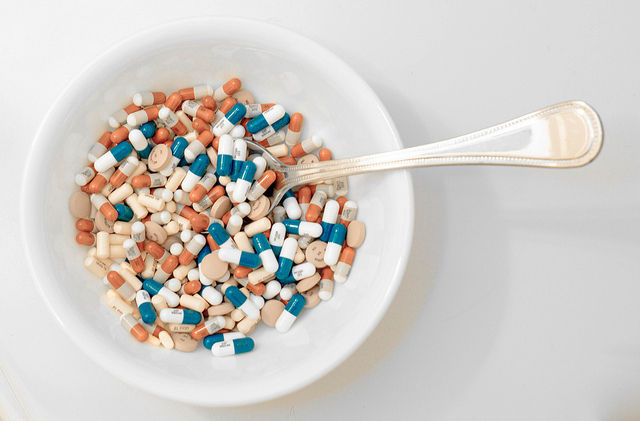Meds Trapped in a Pee-to-Food-to-Pee Loop
Published on by Naizam (Nai) Jaffer, Municipal Operations Manager (Water, Wastewater, Stormwater, Roads, & Parks) in Academic
If you love something, set it free… so the old adage goes. Well, if the things you love are pharmaceuticals, then you're in luck. Through vegetables and fruits, the drugs that we flush down the drain are returning to us—though we’ll ultimately pee them out again (Love is complicated, after all).
 In a randomized, single-blind pilot study, researchers found that anticonvulsive epilepsy drug carbamazepine, which is released in urine, can accumulate in crops irrigated with recycled water—treated sewage—and end up in the urine of produce-eaters not on the drugs.
In a randomized, single-blind pilot study, researchers found that anticonvulsive epilepsy drug carbamazepine, which is released in urine, can accumulate in crops irrigated with recycled water—treated sewage—and end up in the urine of produce-eaters not on the drugs.
The study, published Tuesday in Environmental Science & Technology, is the first to validate the long-held suspicion that pharmaceuticals may get trapped in infinite pee-to-food-to-pee loops, exposing consumers to drug doses with unknown health effects.
While the amounts of the drug in produce-eater’s pee were four orders of magnitude lower than what is seen in the pee of patients purposefully taking the drugs, researchers speculate that the trace amounts could still have health effects in some people, such as those with a genetic sensitivity to the drugs, pregnant women, children, and those who eat a lot of produce, such as vegetarians.
And with the growing practice of reclaiming wastewater for crop irrigation—particularly in places that face water shortages such as California, Israel, and Spain—the produce contamination could become more common and more potent, the authors argue.
“The potential for unwitting exposure of consumers to contaminants via this route is real,” the authors wrote, adding that their study provides real world data that proves exposure occurs.
For the study, researchers recruited 34 healthy adults—excluding vegetarians, vegans, and people who take carbamazepine. The participants were all from Israel, where farmers use reclaimed water for 50 percent of the country’s irrigation needs. California, which grows a large portion of US produce, currently uses reclaimed water for six percent of its irrigation needs, but is looking to increase its usage.
First, the researchers measured what was in each participant’s pee, then randomly assigned them to one of two groups. While each participant got a big basket of produce to eat over one week and another basket for a second week, the contents varied depending on their group.
Those in group one unknowingly started off with produce irrigated with reclaimed water and then got a batch irrigated with fresh water for the second week. Group two started with produce irrigated with fresh water, then were switched to crops bought at a local grocery store. (The authors admit that they meant to switch the second group to produce grown with reclaimed water for that second week, but they ran out.)
The researchers weren’t sure what type of water was used to grow the grocery store produce, but they assumed it was a mix.
Throughout the two weeks, researchers sampled each participant's urine, looking for carbamazepine and its metabolites—forms of the drug that have been modified in the human body.
At the start, the participants had mixed levels of carbamazepine in their urine, with ~38 percent having undetectable amounts, ~35 percent having detectable amounts that were too little to quantify, and ~26 having low but quantifiable amounts.
After the first week, all of the participants in the first group, which noshed on produce irrigated with reclaimed water, had quantifiable amounts of the drug and its metabolites in their urine—some of the amounts hiked up by more than ten-fold from the start. Those in group two, however, didn’t change from their initial measurements.
In the second week, after the veggie swap, the levels of carbamazepine dropped back down to baseline levels in group one participants. Drug levels in participants in group two stayed about the same in the second week, despite some of the grocery store produce testing positive for carbamazepine.
Both of those findings—that drug levels can quickly drop after exposure and the mixed supermarket food didn’t alter levels—is relatively good news for public health, the authors note. Still, the unintentional drug doses in food are a concern worth more attention by the public health community, the authors conclude. Previous studies have found a variety of drugs in crops, including cholesterol medications, caffeine, and triclosan.
Environmental Science & Technology , 2015. DOI: 10.1021/acs.est.5b06256
Attached link
http://arstechnica.com/science/2016/04/drugs-we-pee-out-are-returning-to-us-in-our-salad-bowls-to-get-re-peed/Media
Taxonomy
- Wastewater Use
- Public Health
- Water Reuse & Recycling
- Reuse